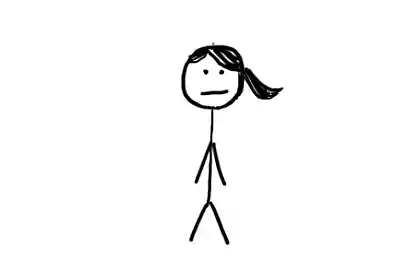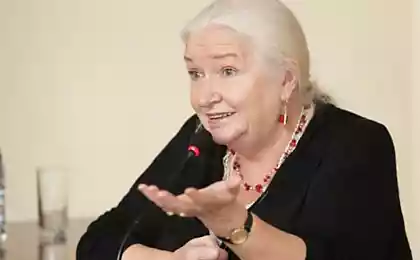581
The great rebel, linguist Chomsky on language, school and children
Abraham Noam Chomsky is one of the most cited scientists, the great linguist, social activist, writer and anarchist political views. The Americans gave him the nickname "Socrates" and "the conscience of the nation".
In his nearly 90 years, Chomsky continues to teach science about language in the famous Massachusetts Institute of technology (what he has been doing for more than half a century), readily gives interviews, writes a daring essays and conducts public lectures.
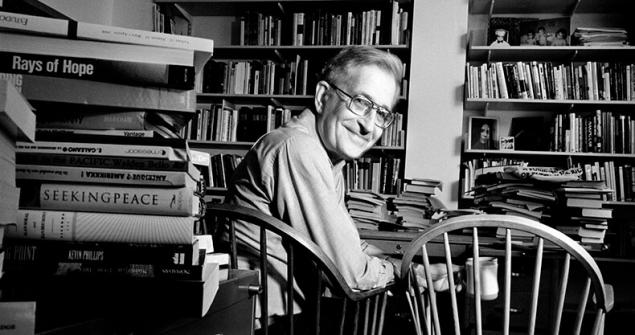
Source: synchronicityandsubculture.com
Chomsky is not just a major figure in modern linguistics, this style of thinking.
All you can truthfully declare that all of linguistics is divided into two periods: before Chomsky and after Chomsky.
No, we still have not learned the truth about the appearance of different languages on our planet, and may settle for a legend about the tower of Babel. But thanks to Chomsky linguistics became a science and not as a classification tool.
In 1957 the world science about language stirred up Chomsky's book "Syntactic structures". Exactly what I was doing linguistics before Chomsky is the accumulation of knowledge about the means and norms of a specific language; the maximum — the Union of languages in language groups and their comparative characteristics.
No one before Chomsky did not perceive language as an innate peculiarity; the language is not evaluated as the same system of understanding the world as, say, visual or visual perception.
On the surface, the languages are very different from each other. Now if someone comes into this room and start talking in Swahili, I can't understand a word. However, I recognize that the language of the.
I won't understand it, but I know that it's not just the noise... the Basis of language is an infinite number of structured utterances with a certain sense. All of this is beyond the boundaries of the field that we can observe, simply by studying texts.
Noam Chomsky and thez story project Serious Science
Indeed, how to explain the crazy speed with which small children learn the language spoken by his surroundings? How the child distinguishes speech from other sounds? They feel the difference between "burn the sun" and "burn to ashes"?
Why children of all countries learn the native language of approximately the same period of time, and no language differences, so long mother studied by linguists, do not affect this process?
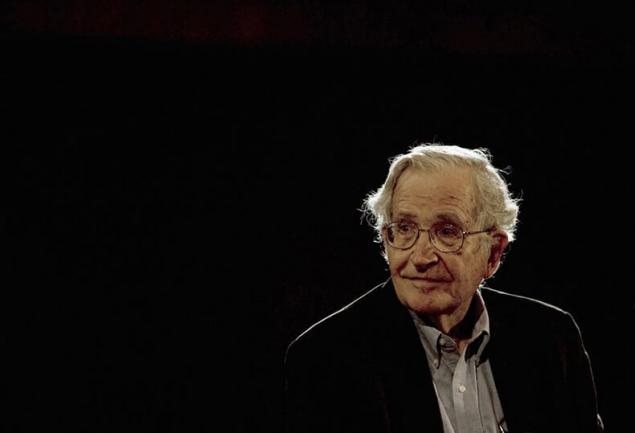
The child, knowing the speech (approximately before the age of five) receives very little information on the language and its rules; however, he grasps them. Clearly not from experience, because the child is not enough. Therefore, knowledge about the grammar of the language are a priori in nature, and each person has a kind of built-in module of some universal linguistic principles. We are not talking about the principles of the Russian language or Chinese; there is a notion of "universal grammar".
...Child can learn any language just because there is a fundamental correspondence between all human languages, because "people everywhere are the same." Moreover, the functioning of language ability occurs optimally at a certain "critical period" of mental development.
Noam Chomsky, "Cartesian linguistics", 1966
Chomsky proposed a radically change our understanding of the language, he began to consider it as part of the genetic program inherent in man.
Thus was created the theory of "generative (generative) grammar".
According to this theory, language consists of an infinite number of interpretable expressions. These expressions are organised with the help of grammatical rules and structures, the number of which is limited. In other words, speaking the language, as if we are operating with Lego bricks: varieties of parts not so much, but they allow you to build an infinite number of designs. We are not aware of the algorithms we use when generating the native language, use them automatically, and in this — the greatest savings of our mental resources.
There must be some language universals, which put limits to the variety of human speech. The study of the universal conditions that determine the form of any human language is the "common grammar". These universal terms are not absorbed by learning, rather, they determine those organizational principles that make possible language acquisition; their existence requires that the man received information, turned into knowledge. If you think these principles inherent property of mental activity, then we have the opportunity to give an explanation for the obvious fact that the speaker in a given language knows many things he never learned in the learning process.
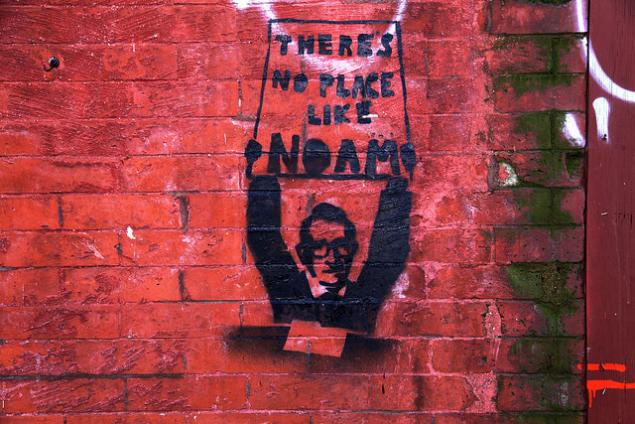
Graffiti on a wall in Brooklyn with a picture of Noam Chomsky. Source: flickr.com
Chomsky, as a teacher with fifty years of experience, a lot of effort given to the development of the concepts of education and sharply criticizes the existing system, particularly the system of testing and assessment.
If you think about it, much in the educational system aimed at instilling obedience and passivity. From childhood interfere with the person to be independent and creative mind. If you allow yourself freedom of thought in the school years, be prepared for trouble.
Chomsky is a bright representative of the radical extreme left, so his attacks on contemporary American education is very politically charged.
We lose the child. Educational programs created under Bush and Obama, just more like a preparation for service in the Navy. Teachers put in the framework of the instructions. Children were in the scope of tests and examinations.
If all training is reduced to exam preparation and the exam, no one will learn nothing. Everything you said in the exam, forget after it ended. I am absolutely sure that such an approach is used deliberately, and that independence and creativity are considered to be dangerous at the highest level of management.
Noam Chomsky, from an interview with Truth Out
In his interview to the resource Chomsky expresses his attitude to the capitalist paradox of distribution of money in the public sector.
In the privatization of many government services (for example, science and education), he sees the desire to privatize the senses and the human mind, to have complete control over it.
Your conclusion that the taxpayer is not getting their royalties no benefits — neither in education nor in health, neither in the field of social protection, it illustrates the story:
"In the 50 years I worked in a research lab, which is fully financed by the Pentagon. The laboratory was engaged in the creation of those information technologies that have now become familiar: the Internet, computers, microelectronics. It was at the expense of budget money. What happened in 30 years? She was transferred to private ownership.
And in 1977 Apple introduced its first desktop computer. Through nearly thirty years of public research money at the expense of its citizens. In an ideal capitalist system working principle: long-term investments always pay off. In this case, invested citizens, and this principle did not work. Taxpayers have contributed and what they got? Nothing. The money flows into the pockets of bill gates and Steve jobs that make use of the achievements of decades of budget surveys.
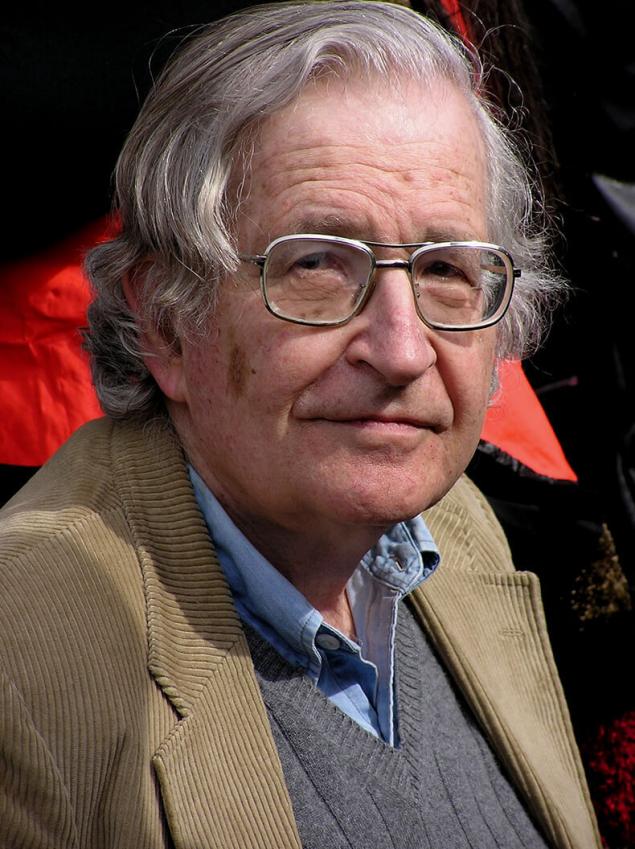
If those people living in the fifties, said, "Where would you like to direct their taxes to develop the technology that will allow your grandchildren play with the iPad, or on the development of health, education, the provision of a comfortable life?" Whatever may be said by our predecessors, it doesn't matter, because they have no choice. They paid taxes because they were intimidated by the threat of the Russians and the Chinese.
And our society obtained government money from the tax go to the enrichment of private corporations."
Chomsky may seem sort of Che Guevara of science.
It is not so; rather, it is a public image, allowing most effectively to communicate their ideas to the General public. He jokingly claims that there are several Chomsky is one engaged in politics, a different philosophy, the third — linguistics.
Famous punk band in 1990, Bad Religion used the voice of Chomsky in the introduction to one of the tracks on the album Generator, is devoted to U.S. actions in the Persian Gulf.
In fact, of course, no split personality, no Chomsky. It is with pleasure communicates with journalists, fans and students, spends several hours a day to answer all emails, and generally kind and modest man with a quiet soft voice. Family man with three children, lots of grandchildren. By the way, why in his theoretical calculations on the structure of linguistic consciousness he so often appeals to children and their thinking.
Like any famous person, Chomsky is surrounded by legends and stories, his personality is cluttered with anecdotes. Somehow came to meet him, the journalist stumbled upon the porter, and he said to him:
"The Professor on the walk, will be back soon, if you find a way home."
Chomsky himself humorously refers to its popularity. A year ago, he became the star of the video, filmed by students at the University of Massachusetts, in which he played himself. The clip became a viral video response to the video of the year — Gangnam Style. The Professor in his office and SIP tea from a mug and proclaims its motto: Oppan Chomsky Style.
Brené brown: Have the nerve to be HIMSELF and stop pretending!Jorge Bucay: 20 steps on the way to her
Chomsky long ago lost count of all his publications and books: it works continuously and selflessly. In the English wiki quotations category "Noam Chomsky" is one of the most overgrown. Hundreds of quotes from interviews, discussions, essays and speeches. Put a fat point in our material of one of his quotations on education:
[about the latest educational reform of the U.S. No Child Left Behind] This reform does not give teachers to teach. It turns teachers into trainers who fed the children the material and check its absorption. This is not teaching, it is a sign of disrespect to teachers. This means that the teacher can't teach interesting things, because it distracts them from studying for exams.
Noam Chomsky.published
Author: Lucy Shirshov
Source: newtonew.com/discussions/nauka-i-obrazovanie-noam-homskij-apple-i-ischezajushchee-detstvo
In his nearly 90 years, Chomsky continues to teach science about language in the famous Massachusetts Institute of technology (what he has been doing for more than half a century), readily gives interviews, writes a daring essays and conducts public lectures.

Source: synchronicityandsubculture.com
Chomsky is not just a major figure in modern linguistics, this style of thinking.
All you can truthfully declare that all of linguistics is divided into two periods: before Chomsky and after Chomsky.
No, we still have not learned the truth about the appearance of different languages on our planet, and may settle for a legend about the tower of Babel. But thanks to Chomsky linguistics became a science and not as a classification tool.
In 1957 the world science about language stirred up Chomsky's book "Syntactic structures". Exactly what I was doing linguistics before Chomsky is the accumulation of knowledge about the means and norms of a specific language; the maximum — the Union of languages in language groups and their comparative characteristics.
No one before Chomsky did not perceive language as an innate peculiarity; the language is not evaluated as the same system of understanding the world as, say, visual or visual perception.
On the surface, the languages are very different from each other. Now if someone comes into this room and start talking in Swahili, I can't understand a word. However, I recognize that the language of the.
I won't understand it, but I know that it's not just the noise... the Basis of language is an infinite number of structured utterances with a certain sense. All of this is beyond the boundaries of the field that we can observe, simply by studying texts.
Noam Chomsky and thez story project Serious Science
Indeed, how to explain the crazy speed with which small children learn the language spoken by his surroundings? How the child distinguishes speech from other sounds? They feel the difference between "burn the sun" and "burn to ashes"?
Why children of all countries learn the native language of approximately the same period of time, and no language differences, so long mother studied by linguists, do not affect this process?

The child, knowing the speech (approximately before the age of five) receives very little information on the language and its rules; however, he grasps them. Clearly not from experience, because the child is not enough. Therefore, knowledge about the grammar of the language are a priori in nature, and each person has a kind of built-in module of some universal linguistic principles. We are not talking about the principles of the Russian language or Chinese; there is a notion of "universal grammar".
...Child can learn any language just because there is a fundamental correspondence between all human languages, because "people everywhere are the same." Moreover, the functioning of language ability occurs optimally at a certain "critical period" of mental development.
Noam Chomsky, "Cartesian linguistics", 1966
Chomsky proposed a radically change our understanding of the language, he began to consider it as part of the genetic program inherent in man.
Thus was created the theory of "generative (generative) grammar".
According to this theory, language consists of an infinite number of interpretable expressions. These expressions are organised with the help of grammatical rules and structures, the number of which is limited. In other words, speaking the language, as if we are operating with Lego bricks: varieties of parts not so much, but they allow you to build an infinite number of designs. We are not aware of the algorithms we use when generating the native language, use them automatically, and in this — the greatest savings of our mental resources.
There must be some language universals, which put limits to the variety of human speech. The study of the universal conditions that determine the form of any human language is the "common grammar". These universal terms are not absorbed by learning, rather, they determine those organizational principles that make possible language acquisition; their existence requires that the man received information, turned into knowledge. If you think these principles inherent property of mental activity, then we have the opportunity to give an explanation for the obvious fact that the speaker in a given language knows many things he never learned in the learning process.

Graffiti on a wall in Brooklyn with a picture of Noam Chomsky. Source: flickr.com
Chomsky, as a teacher with fifty years of experience, a lot of effort given to the development of the concepts of education and sharply criticizes the existing system, particularly the system of testing and assessment.
If you think about it, much in the educational system aimed at instilling obedience and passivity. From childhood interfere with the person to be independent and creative mind. If you allow yourself freedom of thought in the school years, be prepared for trouble.
Chomsky is a bright representative of the radical extreme left, so his attacks on contemporary American education is very politically charged.
We lose the child. Educational programs created under Bush and Obama, just more like a preparation for service in the Navy. Teachers put in the framework of the instructions. Children were in the scope of tests and examinations.
If all training is reduced to exam preparation and the exam, no one will learn nothing. Everything you said in the exam, forget after it ended. I am absolutely sure that such an approach is used deliberately, and that independence and creativity are considered to be dangerous at the highest level of management.
Noam Chomsky, from an interview with Truth Out
In his interview to the resource Chomsky expresses his attitude to the capitalist paradox of distribution of money in the public sector.
In the privatization of many government services (for example, science and education), he sees the desire to privatize the senses and the human mind, to have complete control over it.
Your conclusion that the taxpayer is not getting their royalties no benefits — neither in education nor in health, neither in the field of social protection, it illustrates the story:
"In the 50 years I worked in a research lab, which is fully financed by the Pentagon. The laboratory was engaged in the creation of those information technologies that have now become familiar: the Internet, computers, microelectronics. It was at the expense of budget money. What happened in 30 years? She was transferred to private ownership.
And in 1977 Apple introduced its first desktop computer. Through nearly thirty years of public research money at the expense of its citizens. In an ideal capitalist system working principle: long-term investments always pay off. In this case, invested citizens, and this principle did not work. Taxpayers have contributed and what they got? Nothing. The money flows into the pockets of bill gates and Steve jobs that make use of the achievements of decades of budget surveys.

If those people living in the fifties, said, "Where would you like to direct their taxes to develop the technology that will allow your grandchildren play with the iPad, or on the development of health, education, the provision of a comfortable life?" Whatever may be said by our predecessors, it doesn't matter, because they have no choice. They paid taxes because they were intimidated by the threat of the Russians and the Chinese.
And our society obtained government money from the tax go to the enrichment of private corporations."
Chomsky may seem sort of Che Guevara of science.
It is not so; rather, it is a public image, allowing most effectively to communicate their ideas to the General public. He jokingly claims that there are several Chomsky is one engaged in politics, a different philosophy, the third — linguistics.
Famous punk band in 1990, Bad Religion used the voice of Chomsky in the introduction to one of the tracks on the album Generator, is devoted to U.S. actions in the Persian Gulf.
In fact, of course, no split personality, no Chomsky. It is with pleasure communicates with journalists, fans and students, spends several hours a day to answer all emails, and generally kind and modest man with a quiet soft voice. Family man with three children, lots of grandchildren. By the way, why in his theoretical calculations on the structure of linguistic consciousness he so often appeals to children and their thinking.
Like any famous person, Chomsky is surrounded by legends and stories, his personality is cluttered with anecdotes. Somehow came to meet him, the journalist stumbled upon the porter, and he said to him:
"The Professor on the walk, will be back soon, if you find a way home."
Chomsky himself humorously refers to its popularity. A year ago, he became the star of the video, filmed by students at the University of Massachusetts, in which he played himself. The clip became a viral video response to the video of the year — Gangnam Style. The Professor in his office and SIP tea from a mug and proclaims its motto: Oppan Chomsky Style.
Brené brown: Have the nerve to be HIMSELF and stop pretending!Jorge Bucay: 20 steps on the way to her
Chomsky long ago lost count of all his publications and books: it works continuously and selflessly. In the English wiki quotations category "Noam Chomsky" is one of the most overgrown. Hundreds of quotes from interviews, discussions, essays and speeches. Put a fat point in our material of one of his quotations on education:
[about the latest educational reform of the U.S. No Child Left Behind] This reform does not give teachers to teach. It turns teachers into trainers who fed the children the material and check its absorption. This is not teaching, it is a sign of disrespect to teachers. This means that the teacher can't teach interesting things, because it distracts them from studying for exams.
Noam Chomsky.published
Author: Lucy Shirshov
Source: newtonew.com/discussions/nauka-i-obrazovanie-noam-homskij-apple-i-ischezajushchee-detstvo
Who is REALLY unhappy with your body
This inexpensive and effective exfoliation will lighten and smooth the skin




